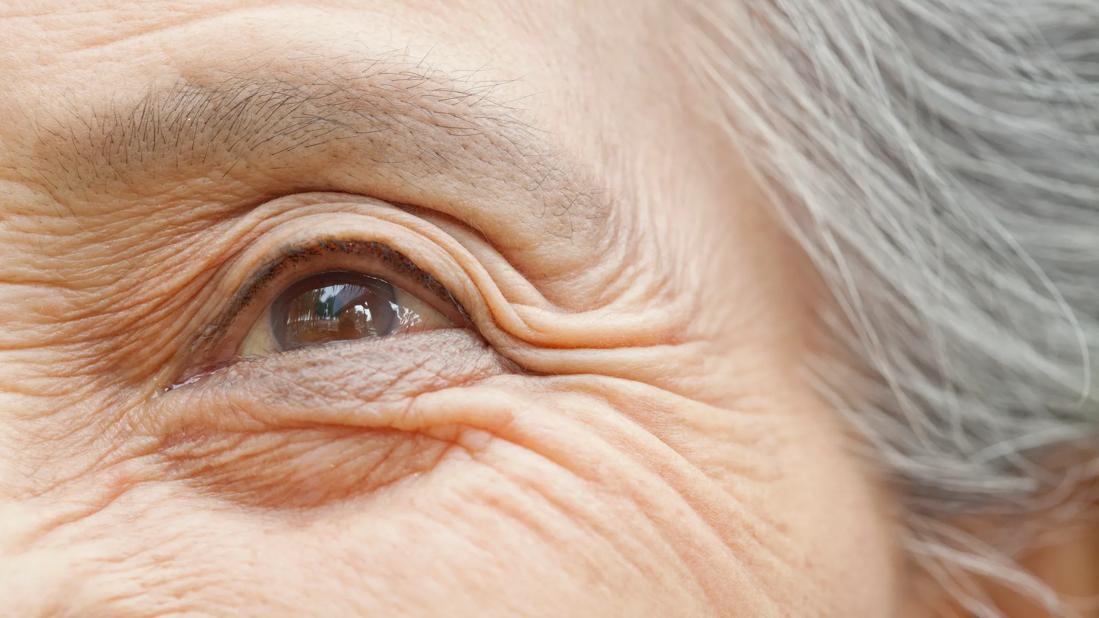Your cells and tissues may be aging faster or slower than your actual age

Image content: This image is available to view online.
View image online (https://assets.clevelandclinic.org/transform/480bfe4d-1cef-42ef-9640-1239ecee224d/eye-1082691656)
Close-up of older person's eye and heavily wrinkled skin around it
It’s a common expression: “You’re only as old as you feel.” And we all know people who bear this out in their daily lives. But is it really possible to defy the calendar?
Advertisement
Cleveland Clinic is a non-profit academic medical center. Advertising on our site helps support our mission. We do not endorse non-Cleveland Clinic products or services. Policy
Turns out, the answer is yes.
“Your chronological age — how long you’ve been alive — is not as strong a predictor of health as you might think,” says family medicine provider Saadia Hussain, MD. “Your biological age is a more accurate measure of how fast your cells, tissues and organs are aging.”
Dr. Hussain explains all about your biological age and steps you can take to slow the aging process.
Scientists define biological age as “an accumulation of cellular damage over time” — how much damage has happened to your cells over the years. This damage occurs naturally with age. Other factors that affect your biological age are your genes, habits and physical environment.
“Think of biological age as a reflection of your overall health and potential longevity,” says Dr. Hussain. Older biological age is linked to earlier development of chronic diseases, such as:
The concept of biological age comes from a 1969 paper by British physician Alex Comfort.
“Over the years, researchers have studied many ways to measure a person’s biological age,” says Dr. Hussain. “One of the most common markers used today is DNA methylation, an idea first published in 2013.”
Advertisement
DNA methylation occurs when small groups of chemicals called methyl compounds attach to the DNA in your cells. Methylation doesn’t affect the DNA sequences. But it can disrupt cell functions, especially those related to aging and age-related diseases. The amount of DNA methylation in your cells is then used to calculate your biological age — aka your epigenetic clock.
Another way to estimate biological age is to use standard blood tests and physical characteristics. Researchers have developed complex equations (algorithms) that combine various clinical measurements, such as:
Biological age estimates are widely used in aging research. But they’re not part of routine medical care yet, notes Dr. Hussain. This isn’t something you’ll get at your annual physical.
Despite this, biological age testing is widely available online. You send in a blood or saliva sample, pay several hundred dollars and then, get results sent to you that tell you your biological age.
So, should you spend your hard-earned money to find out where you stand? Dr. Hussain advises caution. “It’s not clear how reliable these tests are,” she says. “Also ask yourself whether the results will change how you live your life.”
What if you find out your body is aging faster than your chronological age? Will it inspire you to change your habits? If the answer is yes, then a test may be helpful — a way to jump-start some healthy living changes. But you can also make these changes without the test.
“The steady march of time affects us all,” poses Dr. Hussain. “But there are many things you can do to slow the clock. That’s true even if you don’t know exactly how ‘old’ you are.”
It’s all about treating your body well, using time-tested strategies, like:
Advertisement
Making lifestyle changes can seem overwhelming. But you don’t need to do it all at once — or alone. A healthcare provider or dietitian can help you get started and stay on track.
Longevity scientists are searching for medications that might slow aging.
“There’s a lot of misinformation out there and people looking to take your money,” states Dr. Hussain. “But there are some promising drugs.”
No medications are currently approved by the U.S. Food and Drug Administration (FDA) for antiaging use. Some are currently being studied. But this research takes time.
For now, be cautious of any supplement marketed as having anti-aging effects and stick to healthy habits instead.
Advertisement

Sign up for our Health Essentials emails for expert guidance on nutrition, fitness, sleep, skin care and more.
Learn more about our editorial process.
Advertisement
Biological changes, family issues and work problems may cause you to reevaluate your life and make changes for the better
Living longer is more than just growing older — it’s also about living life to its fullest
It's never too early to prevent bone loss with diet, physical activity
How to exercise as you age
Understanding what's in your control, and what's not
Advice for preventing and treating health issues
Take steps now to keep them in good working order
Mental health issues can be tied to medical problems
Although it could be used as a moisturizer, this new trend is not recommended
Communicating clear limits helps protect your time, energy and emotional well-being
High cholesterol can be genetic, but testing and treatment can lower your heart disease risk